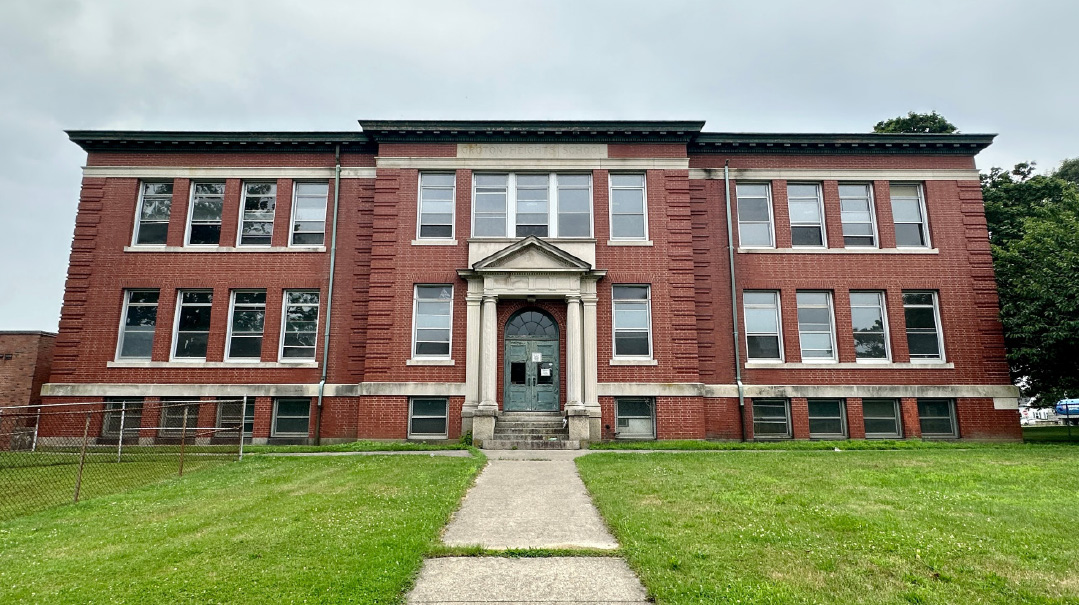Is Adams on the Eve of the End?
| February 25, 2025Eric Adams was already in hot water — now it seems his goose is cooked

Photo: AP Images
N
early half of New Yorkers want to leave the city behind, and they blame Mayor Eric Adams. It’s time for the city to look past him… and for him to look past the city.
That’s the message from a leading Democratic Party analyst, as the drama surrounding the mayor reaches a feverish pitch: His political goose was cooked long before he ended up in hot water.
“Adams was already in very serious political trouble weeks ago, before his perceived alliance with Donald Trump dynamited his chances of getting reelected,” says Bradley Honan, CEO and president of Honan Strategy Group, who has also done work for the Teach Coalition affiliated with the Orthodox Union. “The public is in a fearful and anxious period the likes of which we have not seen for a long time. It’s a five-alarm fire.”
Honan’s company polled New Yorkers in early February and found that 80% of the respondents are worried about the current level of crime, while 75% believe their city is in a state of crisis. Nearly half, or 45%, say that if things get any worse, they “may be forced to move out.”
“People are very unsettled about going about their daily lives,” Honan explains. “My barber is taking his yarmulke off to get on the subway system. People hold Mayor Adams responsible for this… They’re looking for very, very different political leadership.”
Now Adams seems to be in absolute political freefall. He was indicted in September on federal charges of bribery, fraud, and soliciting illegal foreign campaign contributions, with additional charges for obstruction of justice, destroying evidence, and campaign finance violations in the works.
On February 14, the US Department of Justice filed a motion in court to drop the case, but the rationale seemed to have been based not on his guilt or innocence but on his job and value to the Trump Administration. The filing said the charges should be dropped because they came too close to the upcoming mayoral election, and because “continuing these proceedings would interfere with the defendant’s ability to govern in New York City.”
The directive to drop the charges came from former Trump attorney and Acting Deputy Attorney General Emil Bove, citing grounds that the case restricted his ability to help the Trump administration enforce its immigration policies.
The move followed closely on the heels of a meeting between Adams and border czar Tom Homan, at which the latter secured promises for cooperation from the city in his efforts to deport illegal aliens. The cooperation, timing, and context of the decision to drop the charges framed the appearance of a clear quid pro quo, under which Adams supported Trump goals in exchange for cessation of his own legal troubles.
Unlikely to Leave
The blowback was immediate, fierce, and a death knell for Adams’s standing among Democrat voters. Eight federal prosecutors, including the US attorney for the Southern District of New York, resigned immediately in protest. Four New York deputy mayors followed suit, leaving the Adams government with gaping holes in top positions.
Widespread calls from Democrat leaders for his resignation or removal followed quickly. City comptroller Brad Lander, who is himself running for mayor, threatened to convene an archaic New York body called the “inability committee,” designed to remove a mayor who cannot function for medical reasons. Lander proclaimed a deadline for Adams to submit a plan for running the city even as his senior officials jumped ship in droves.
New York governor Kathy Hochul, who holds a yet-to-be-invoked power to fire Adams, met with senior political strategists in the city to discuss the possibility of using it.
Does this mean will Adams quit? Or that he’ll be fired? Honan doesn’t think either of these possibilities will occur.
“There is close to no chance that Adams is going to resign,” he told us, “and absolutely zero chance that Governor Hochul removes him from office.”
The mess surrounding Adams has harmed Hochul as well, he explained, and she has painted herself into a corner. The governor has long been weak politically, and is almost certainly going to lose her own reelection contest in 2026.
“She has been trying to use this moment to demonstrate her leadership,” Honan said, “but what she actually has done is upset both sides, creating an uproar in the black community.”
On Wednesday, 12 African-American state and city lawmakers penned a threatening letter to Hochul. “As Black legislators, we have seen this over and over again: double standards and unfair process when it comes to our leaders,” the letter read. “If a move against the mayor is made without a justifiable legal reason, our communities will never forget it.”
The process to remove a mayor is long and complex, with the executive entitled to due process hearings. If Hochul were to set out down that road, it would mean months of bad press for her, and the process would be unlikely to conclude before the Democratic primary.
Subsequent to our conversation with Honan, Hochul announced that she was delaying any move on Adams, but is working on finding a middle ground — leaving Adams in office but passing legislation to curb his power by appointing a state inspector general, expanding the state comptroller’s authority, and allowing city officials to circumvent the mayor and sue the federal government.
Hochul’s moves appear to be a meaningless attempt to appease both sides of the debate. New York Law School professor Stephen Louis pointed out to Fox News that the proposals are largely redundant — there are already many officials with oversight powers on the mayor and the ability to sue the federal government.
Adams will most likely not resign or quit his campaign, because his value to the Trump administration hinges on his role as mayor and mayoral candidate. Were he to lose that, he might lose his federal protection. The charges against him could also be reconsidered when he leaves office.
What Next?
What does the furor surrounding Adams and Hochul mean for the future of the city and state, politically? Both are Democrat strongholds, in which the real race is the party primary, with the general election a mere formality. Honan first points out global trends in Democrat politics.
“When there is a Republican in the White House, we see a high turnout for the primaries, and a surge of motivated far-left voters,” he says. “Donald Trump’s first term, in particular, gave us Alexandria Ocasio Cortes, Jamal Bowman, and the Squad.”
Anti-Trump surge voters, upset with both Adams and Hochul, are likely to trigger a shift to the extreme left of the party. Trump’s intervention to stop congestion pricing is also inflammatory to these fringe voters.
Honan’s team conducted a survey targeted at anti-Trump surge voters, and found triple the amount of support for comptroller Brad Lander in a mayoral election.
“That doesn’t mean Lander will win —he won’t,” says Honan, noting that Lander is polling at just 9% overall among likely voters. “But it clears the way for a candidate like Andrew Cuomo, and means the eight to ten open seats on the New York City Council are likely to go far left in November.”
Andrew Cuomo has not officially announced a run for mayor, but in Honan’s polling still gives the former governor a robust lead of nearly 40 percentage points over any other candidate. Adams is polling in the single digits, alongside unknown council members.
There are many ways to slice public opinion regarding a candidate, and Cuomo leads on almost all of them. He has the most name recognition; he has an established brand as a competent leader and manager; and public opinion views him as the most capable of handling the top issues for Democrat voters in New York City. These include challenges like the MTA, the economy, health care, housing, crime, quality of life, immigration, and standing up to Trump. New York elections currently employ ranked-choice voting, which typically favors candidates with name recognition — perhaps Cuomo’s greatest strength.
Hochul is unlikely to be the Democrat gubernatorial candidate in 2026, Honan says, and her weakness may even open the door for a Republican to take the governor’s mansion. Monsey’s Congressman Mike Lawler and Nassau County Executive Bruce Blakeman are both seen as strong candidates with widespread appeal.
What’s next for Adams? There doesn’t seem to be a way for him to accomplish a political turnaround, but perhaps there is another way for him to keep power and prestige. Honan thinks he goes all in with the Trump administration and gets picked up for a federal commission. It’s impossible to tell what kind of job he might land, but he has a strong record in law enforcement. Despite public perception is that the city is out of control, Adams, a former police captain, repeatedly touts statistics he claims show the city is safer now than it was under former mayor Bill de Blasio.
A deeply religious man and strong friend of the Jewish community, Adams has responded to the cascade of crises by proclaiming his firm belief in the power of prayer, and visiting the ohel of the Lubavitcher Rebbe, as he has done at several pivotal moments in his career.
With the far-left faction waiting to pounce, such a scene might be one we will grow to miss.
(Originally featured in Mishpacha, Issue 1051)
Oops! We could not locate your form.







